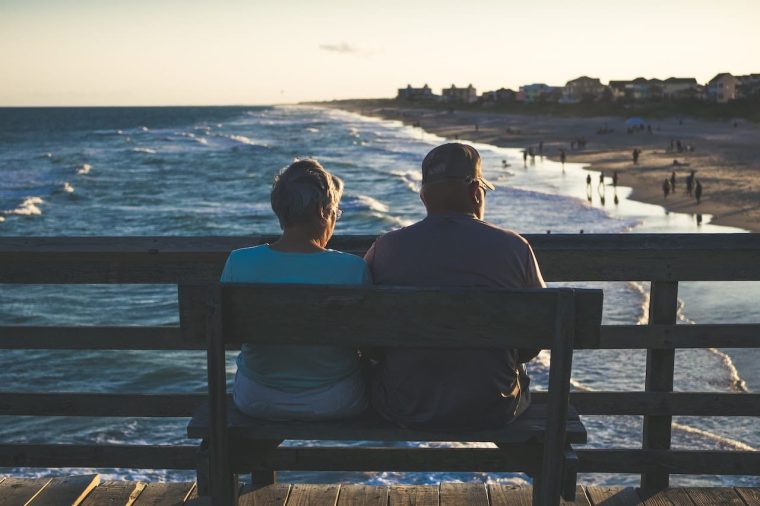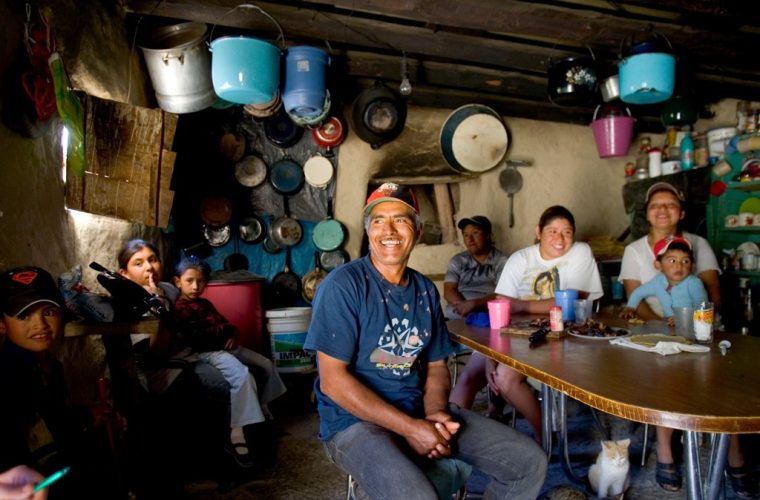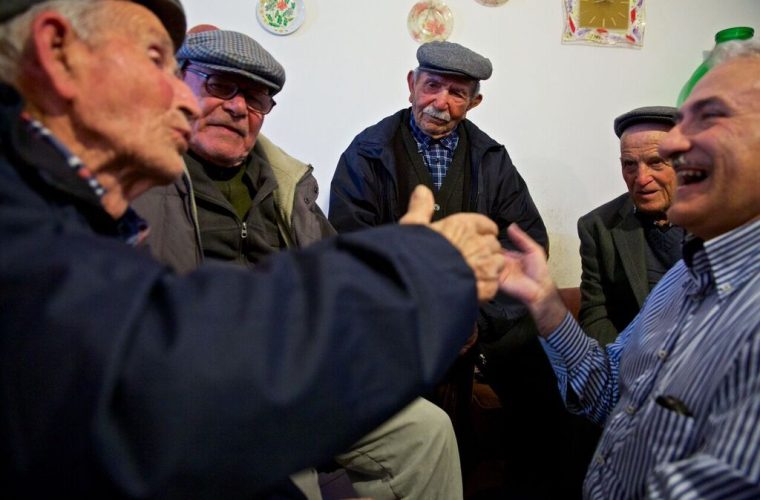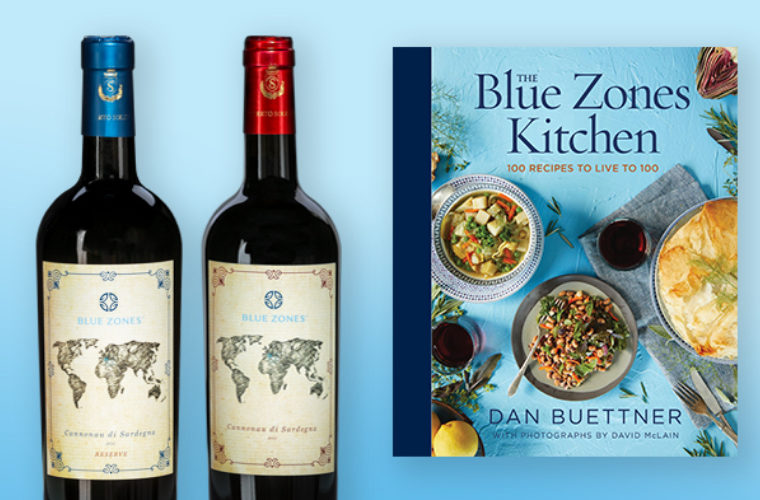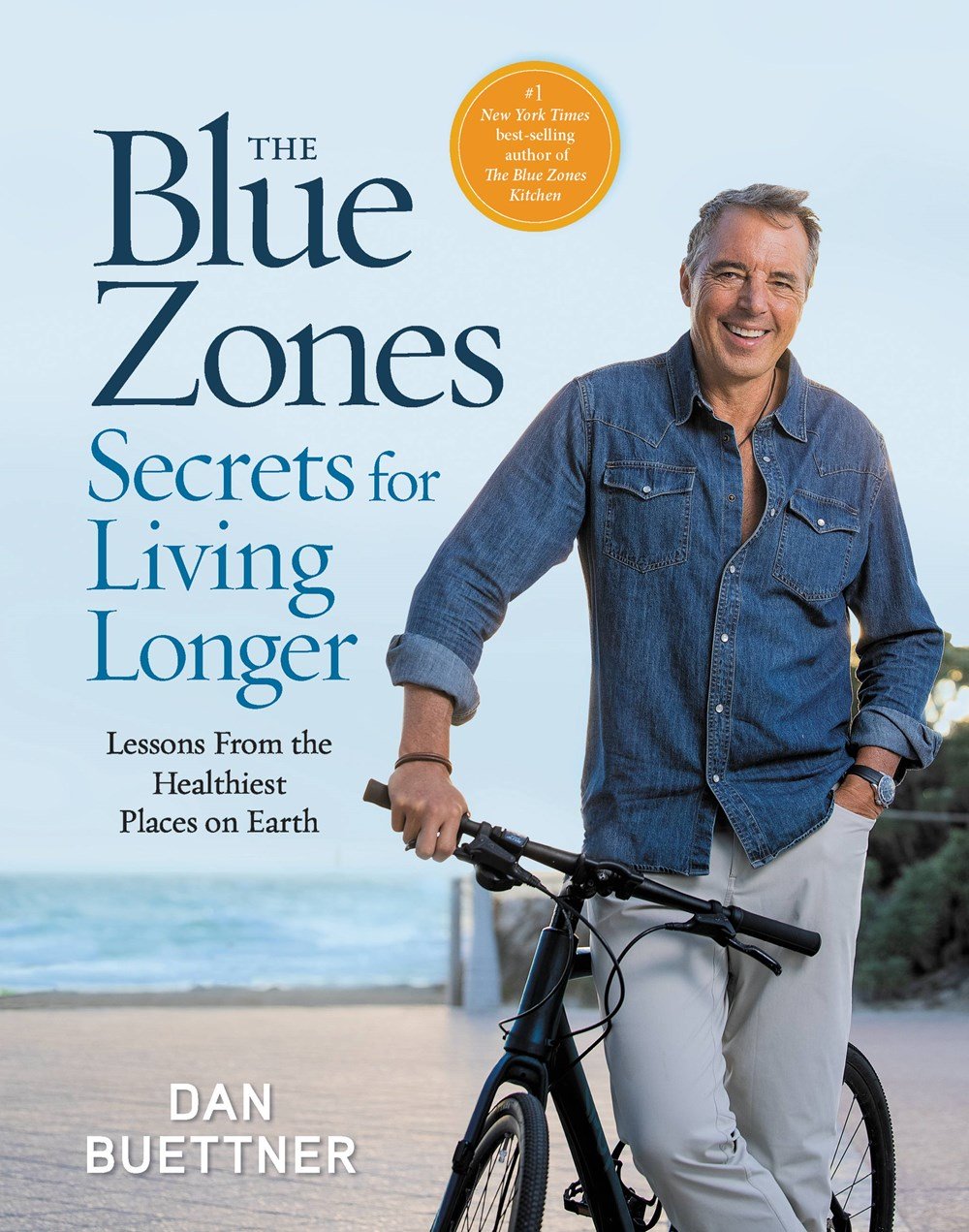Now, Marta Zaraska, in her powerful new book, Growing Young: How Friendship, Optimism, and Kindness Can Help You Live to 100, unpacks these “soft drivers” of health, showing us why they are more important than the marketer’s panacea, diet-and-exercise.
I interviewed Marta from her home in Paris (from Santa Barbara). I found her answers enlightening.
Dan Buettner: What inspired you to write this book?
Marta Zaraska: It wasn’t one lightbulb moment – it came organically out of the combo of my work as a science journalist and my parenting. On one hand, I’ve been writing for years about nutrition and psychology, and on the other hand, I was very much into healthy living in my private life, especially since my daughter was born eight years ago. At first, I took the classic approach—diet and exercise—and I have to admit, I was a bit obsessive about it. I was puréeing heritage tomatoes and organic broccoli for my daughter, adding chia seeds and goji berries to her desserts, and sprinkling turmeric on her dinners. After all, as a parent, my biggest wish was for my daughter to be healthy and live really, really long. At the same time, however, in my work, I started coming across more and more research pointing in a very different direction—that maybe all these chia seeds and organic broccoli purées were not as important as I thought, and that I was missing out on other things that were particularly vital for our health and longevity—friendship, optimism, kindness, conscientiousness. All the things I now call the ‘soft drivers’ of health.
DB: What is the most interesting thing you learned?
MZ: How much these soft-drivers of health matter for our longevity. Admittedly, before writing Growing Young I did have an inkling that, for example, optimism or a happy marriage may be good for health, but I hadn’t realized how important. Just consider the numbers. Studies show that building a strong support network of family and friends lowers mortality risk by about 45 percent. Exercise, on the other hand, can lower that risk by 23 to 33 percent. Eating six servings of fruit and veg per day can cut the danger of dying early by 26 percent while following the Mediterranean diet by 21 percent. For volunteering, it’s 22 to 44 percent. And yes, such numbers should be taken with caution, coming as they do from studies with varying methodologies, which means they are not straightforward to compare, but they do reveal some important general trends.Another thing I haven’t realized before Growing Young is how directly our social lives and our mental habits affect our physiology. Sometimes people ask me if it isn’t some kind of new-age-y stuff. It definitely isn’t. There are so many various research studies showing effects of these “soft drivers” on health: epidemiological studies, randomized experiments, studies on animals, on cell cultures, and so on, showing effects on gene expression, on the levels of immune proteins in the blood, on our hormones, brain activation patterns, etc. We are talking about strictly biological effects here.
DB: What did you discover that most people don’t know about longevity?
MZ: That living long often goes hand in hand with living healthy. When people hear the title of my book sometimes they tell me: “Oh, but I don’t want to live to 100, I don’t want to be frail and infirm and spend years in a hospital bed.” But that’s a common misunderstanding. In fact, while a typical person who lives to be 80 or so will spend 18 percent of their time on Earth ridden by disease, for super-centenarians, so those who live 110 plus, that’s just 5 percent. One out of 10 super-centenarians escapes disease until the very last 3 months of life. Just imagine, you live 110 years and are only infirm for 3 months! Of course, you may hear of someone’s grandma who was sick for four decades until she died at the age of 102, but that’s more of an exception than a rule. It’s a bit similar to the story of “my grandpa smoked two packs a day and he lived to be a hundred and never had cancer.” It happens, but that’s not the rule.
DB: What are the top three things you can do to increase your healthy life expectancy?
MZ: Number one would be a happy, committed romantic relationship—being in one of those can lower your mortality risk by about 49 percent. A good marriage can stave off cancer, diabetes, heart disease, the flu—the list goes on. Not only does it calm our stress response and the HPA axis – our fight-or-flight response, it can also boost the release of health-relevant social hormones, such as oxytocin, endorphins, serotonin.
Number one would be a happy, committed romantic relationship—being in one of those can lower your mortality risk by about 49 percent. A good marriage can stave off cancer, diabetes, heart disease, the flu—the list goes on. —@mzaraskaCLICK TO TWEET
Number two would be your general social connectedness: so the quality of your friendships, how well you know your neighbours, how well you get on with your colleagues at work, etc. All this taken together can lower your mortality risk by about 45 percent. In Growing Young, I describe a town called Roseto in Pennsylvania which in the 1960s attracted the attention of doctors and researchers because the rates of cardiovascular disease there were much lower than in the U.S. in general or in the surrounding areas. Basically, no one was dying of heart attacks in Roseto. After checking for genetic effects and assuring it was not exercise nor diet (people in Roseto actually had a pretty horrible diet, full of saturated fats), they came to the conclusion that the Roseto effect was due to the very tight community people in Roseto have created.
Number three would be diet and exercise—unless we are talking only about the soft-drivers of health. Because – just to make it clear – I never say that diet or exercise is not important. They are important, but sometimes we put too much emphasis on miracle diets, superfoods, exercise gadgets, and completely overlook the social side of health.
So if we are talking soft drivers of longevity, then the third thing would be kindness and volunteering (which come close to diet and exercise). Volunteers have a 29 percent lower risk of high blood glucose, about 17 percent lower risk of high inflammation levels, and spend 38 percent fewer nights in hospitals than do people who shy from involvement in charities.
DB: What do parenting and cigarettes have in common?
MZ: They both tap into the same brain reward systems, in particular the insula. Smoking addiction activates the brain reward networks but so does caring for others, and in particular caring for children. What’s more, caregiving also lowers the levels of stress hormones and inhibits the activity of the amygdala, the brain’s fear center. That’s why caring for others, as long as it doesn’t physically exhaust us, can boost our health. That includes not just caring for children, but also volunteering, monetary donations, and random acts of kindness.
DB: Is there any pill or intervention on the scientific horizon that you believe will reverse, slow, or stop aging?
MZ: I highly doubt that. Aging is far too complicated to be “solved” by a pill, and we still don’t even understand why we age and die in the first place. Scientists can’t even agree on whether there is a limit to human lifespan. When in 2016 several scientists published a paper claiming that the maximum human lifespan fluctuates around 115, it was followed by a huge disagreement in scientific literature. The pills that are currently being touted as longevity miracles are anything but. What’s more, they may have serious side effects. Take metformin, a diabetes drug—it can cause diarrhea, cold sweats, coma, seizures, and racing heartbeat. Many of the therapies hyped in Silicon Valley as longevity treatments haven’t undergone rigorous testing on humans at all.
DB: How have you changed your life since writing this book?
MZ: I certainly have. I’m a runner, and early this year, pre-COVID, I considered running another half-marathon. But when I wrote down my training schedule I realized that it would take away a lot of time from my family. And so I decided not to do the half-marathon. Instead, I spend that extra time sitting on the couch with my husband, chatting. In the past, I’d feel guilty about it, as if I were sacrificing my health. Yet now I know these chats can be actually more important to my longevity than extra training sessions. I also make sure to do more sports together, with other people (to benefit from a social life and exercise combo), I try to do more acts of kindness, it can be as simple as picking litter on the way to a store, or letting others ahead in traffic. And I also now see the mess in my daughter’s room as a health risk (and not just because of the risks to my feet from stepping on a lego). It’s been shown that conscientiousness is very important driver of health, so I’m trying to teach her to be better at tidying up.
DB: How long do you think your children will live?
MZ: That’s a tough question! I hope at least to a hundred. On one hand, yes, medicine is improving as is our knowledge of what helps us live long, but on the other hand there is climate change, which keeps me awake at night. Will it affect my daughter’s health in the future? Hard to tell. And yet again history teaches us that in difficult times people often find more meaning and purpose — and even happiness. The French haven’t been as happy since the Second World War as they were during the war, and Britons were less happy in the 1980s than in the 1940s. We also know that both purpose in life and happiness are extremely important for health and longevity (optimism can add between four and ten years to your life). So maybe even if my daughter will live through some tough times, she will manage to find purpose in all this, and live longer as a result? Fingers crossed. For now, I’m teaching her to be kind—and to tidy up her room.
DB: Do you believe in “superfoods” when it comes to longevity? If so, what would they be?
MZ: No, unless by superfoods you simply mean carrots or apples or broccoli. But there are no miracle foods, there is no one thing that can somehow lengthen your telomeres and reverse aging. I believe healthy nutrition is fairly simple – just like Michael Pollan said – “eat food, not too much, mostly plants”. Most of the other stuff we hear is either marketing or the media looking for new stories to grab our attention. At best, we are just wasting money on these things. Take moringa leaves which are all the rage now — as one Canadian researcher wrote in his paper, “The enthusiasm for the health benefits of M. oleifera is in dire contrast with the scarcity of strong experimental and clinical evidence supporting them.” Same thing with goji berries, also known as the “Himalayan longevity fruit.” Goji berries are supposed to treat diabetes, prevent cancer, and help with weight loss. Yet research on the fruit is beyond scarce. If you like them, sure, eat them, but don’t expect they will somehow miraculously boost your longevity far beyond what you can get from apples or strawberries or cabbage.
DB: Many of the interventions you suggest—kindness, optimism, stress reduction, are short-lived behavioral changes, what can we do that really lasts long enough to impact our life expectancy?
MZ: I certainly don’t agree these are short-lived! Just like with your dietary and fitness behaviors you have to change them for life. And the impacts we are talking about here can be huge—optimism can add you ten years of life. A happy marriage can lower your mortality risk more than quitting smoking (if you puff two packs a day). Of course, all these things add up and work best together. So in a perfect scenario, you would eat healthy (but no organic kale or running marathons are necessary), exercise regularly, and be kind, social, optimistic, conscientious.
